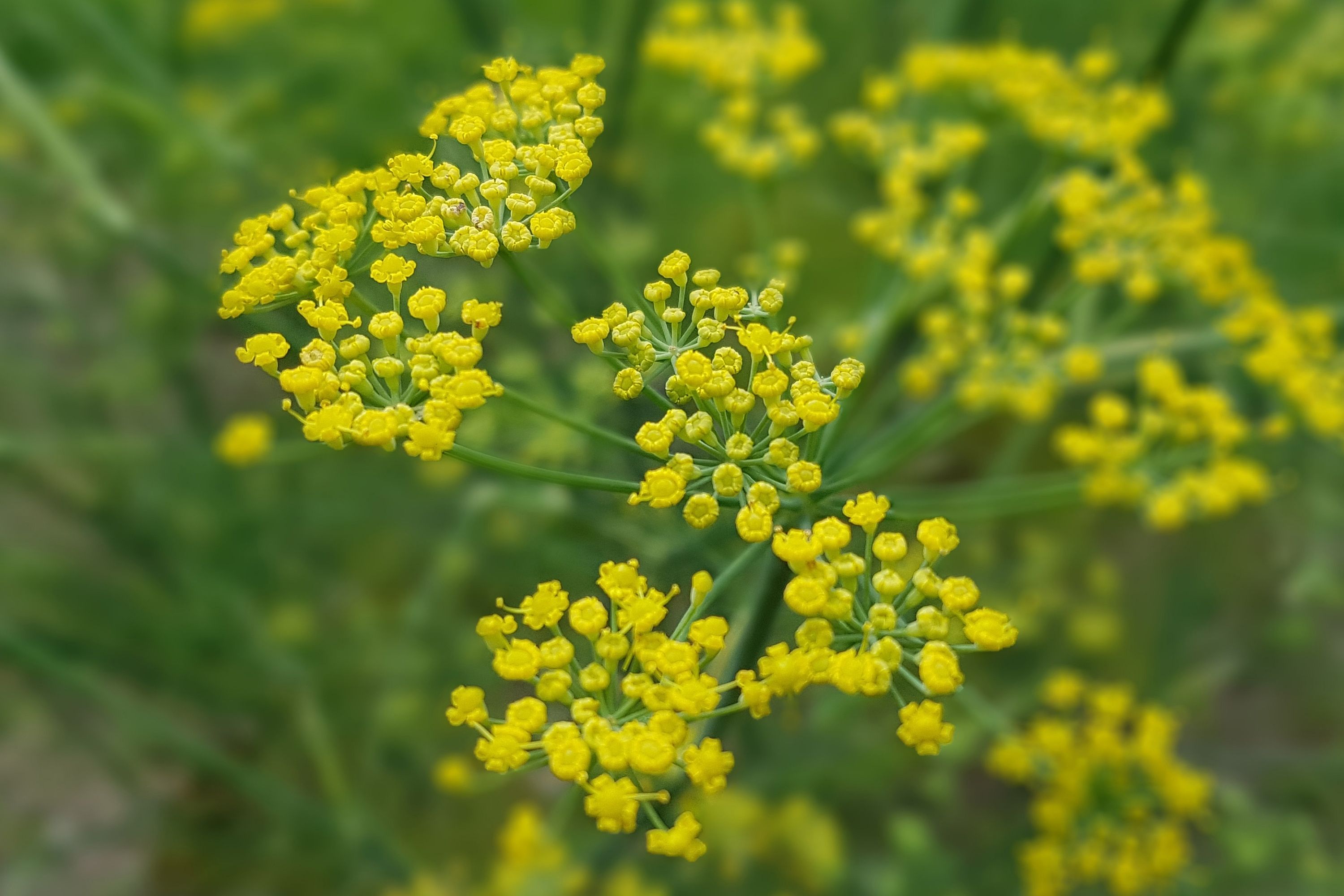Fennel
(Foeniculum vulgare)

Description
Foeniculum vulgare, commonly known as fennel, is a flowering plant that belongs to the Apiaceae family. This plant is native to the Mediterranean region but is now widely cultivated in many parts of the world, including Europe, Asia, and North America. Fennel has been used for centuries for its medicinal and culinary properties. It is a versatile plant that can be used in salads, soups, stews, and other dishes. In this article, we will discuss the characteristics, growth habits, uses, and benefits of Foeniculum vulgare. Description: Fennel is a perennial herb that grows up to 2 meters tall. It has a long, slender stem that is ribbed and hollow. The leaves are feathery and finely dissected, with a bright green color. The plant produces small yellow flowers that are arranged in umbels. The fruits are oblong and ridged, and they contain small, brownish-yellow seeds. Growth Habits: Fennel prefers to grow in full sun in well-drained soil. It can tolerate a wide range of soil types, but it prefers fertile, loamy soil. The plant is drought-tolerant and can grow in areas with low rainfall. Fennel is hardy in USDA zones 4-9 and can be grown as an annual or a perennial depending on the climate. Propagation: Fennel can be propagated from seed or by dividing the plant. The seeds can be sown directly into the garden in early spring, or they can be started indoors 6-8 weeks before the last frost date. The seeds should be sown 1/4 inch deep and spaced 12-18 inches apart. Fennel can also be propagated by dividing the plant in the spring or fall. Uses: Fennel has a long history of use in culinary and medicinal applications. The plant is used in many dishes, including salads, soups, stews, and marinades. The seeds and leaves are used to flavor sausages, meat dishes, and liqueurs. Fennel is also used to make tea, which is believed to have digestive and soothing properties. In traditional medicine, fennel has been used to treat a variety of ailments, including digestive issues, respiratory problems, and menstrual cramps. The plant contains volatile oils, including anethole, fenchone, and estragole, which are believed to have anti-inflammatory and anti-microbial properties. Benefits: Fennel is a nutritious plant that is rich in vitamins and minerals. It is a good source of vitamin C, potassium, and fiber. The plant also contains antioxidants, which help to protect the body against oxidative stress and inflammation. Studies have shown that fennel may have several health benefits, including: Improved digestion: Fennel may help to relieve digestive issues, such as bloating, gas, and constipation. Anti-inflammatory effects: The plant contains compounds that may help to reduce inflammation in the body. Anti-cancer properties: Some studies have suggested that fennel may have anti-cancer properties, although more research is needed. Respiratory health: Fennel may help to relieve respiratory issues, such as coughs and congestion. Conclusion: Fennel is a versatile and useful plant that has been used for centuries for its culinary and medicinal properties. It is easy to grow and can be propagated from seed or by dividing the plant. Fennel is a nutritious plant that contains vitamins, minerals, and antioxidants. It may have several health benefits, including improved digestion, anti-inflammatory effects, and anti-cancer properties. Fennel is an excellent addition to any herb garden and can be used in a variety of foods.
Taxonomic tree:







